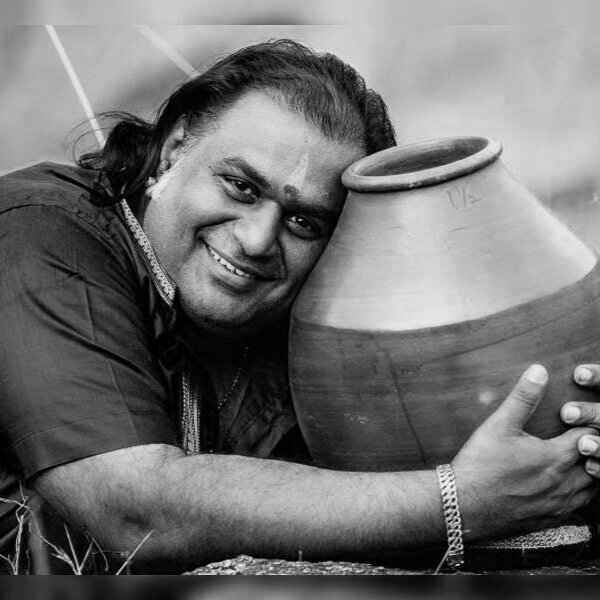Passionate about percussion
He loves to perform without microphones for the sake of “sound”. Ghatam S Karthick, the purist, can express his passion for sound and musical expression in theory as well as practice. He can talk about a doctorate thesis in music and a thavil with the same intensity.
The percussionist says that receiving the prestigious Ustad Bismillah Khan Yuva Puraskar has made him believe in his music and his performance in the coming years. He adds, "Awards increase the artist’s responsibilities. So every time I receive an award, there is an urge to deliver more."
Music is an extension of our expressions, believes Karthick. "It can’t be taught. The system of categorising instruments as main and subservient does not happen only in India. It needs to go. There are days when I perform without microphones. Today the ghatam is no longer a subsidiary instrument," Karthick explains.
His orchestral group Heartbeat has performed the world over and has released two albums —Thaka Dhimi Taka Jhunu and Thana Dhirana Jam. He says, “We have been successful in bringing more audience towards classical music and rhythm. Our traditional concepts need to be told in such a manner that the audiences are able to relate with it and understand it at the basic level.”
Like his music, Karthick’s compositions are a blend of classical and contemporary. His thesis ‘Musical instruments in Sanskrit literature’ has been the culmination of efforts spanning a decade that has a lot of references to the Vedas, Puranas, Bhagavad Gita, Upanishads and Tamil Literature, probing the therapeutic aspects of music.
Karthik loves the “remix” trend. “Musicians play a great role in holding the attention of the audience. To make my piece a bit interesting, I always give 30-second snippets on the songs. The intelligence of a musician lies in marketing his package attractively,” he says.
Karthick teaches Indian percussion at the Swarnabhoomi Academy of Music, ECR, with guitarist Prasanna and artiste Aalangudi Ramachandran. He says, “I was never after money. I am willing to teach all I know to my students. I want to project the legacy of Indian rhythm worldwide. I conduct online classes for students abroad. As part of the cultural exchange, I’ve conducted percussion workshops. We are the only Indian faculty in the academy."
Karthik believes that people from different parts of the world are more observant about tunes, while Indians are just bound by lyrics. Eyeing reinvention, which is the key to the longevity of an art form, he says that the eminence of old-time exponents or the shallowness of the present day artistes’ cannot be disputed.
Beyond fun and frolic, music has aspects like lecture-demonstrations, symposia to be explored. It is important to make a layman understand laya,” he adds.
Karthik’s interest in learning the instrument was encouraged by mentors Vikku Vinayakram and Subhash Chandran in his early days. His father E V Subramaniam’s constant criticisms made him attain perfection. His mother Padma was a graded artiste of AIR. The artiste believes that corporate sponsorship can make a lot of difference to the music scenario and musicians. He adds, “At every concert, I strive to demonstrate my individuality, making the kutcheri circuit lively.”
Though he performs with large ensembles involving electric guitars, drums and thavil, he feels that the ghatam sounds the best when its natural tone is heard. “Experimentation with manodharma is acceptable any day,” he concludes.
(The piece was originally written for The New Indian Express)



Comments
Post a Comment